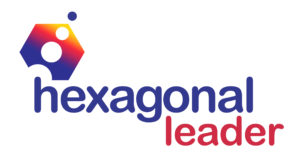
Hexagonal Leader Project - KA2 2019
Leaders, entrepreneurs, executives, managers and workers in general are required to develop new skills and strategies for a new marketplace that is seeing advances in science and technology that together have been dubbed the Fourth Industrial Revolution. Therefore, success in this new era requires the management of teams of specialised technical experts: "knowledge workers" such as scientists, engineers, data analysts ... In parallel, the increasing interconnectivity of the world is giving us a new form of globalisation in which teams are becoming increasingly of globalisation in which increasingly diverse teams of people work together. Managing these teams requires a very different mindset to that of "standard" leadership and motivational models. An approach that recognises the heterogeneity, ambition and sophistication of such staff by integrating new and relevant skills.
WEBSITE
Our I&F team has created the website and assessment tool for the project. For more information, please visit: www.hexagonal-leader.eu

In this line, the World Economic Forum published in 2016 (and updated in 2018) the report 'The Future of Jobs', highlighting that "the changes currently taking place in the workforce will displace some workers while creating new opportunities for others, The Forum report said to speak of a "growing instability of skills" where technology changes the profiles of many current jobs and different competencies are required ". It is estimated that more than half of all employees will require significant upgrading and updating in the coming years, a context in which it is easy to accept that the role of the leader and his or her type of leadership must adapt to the new scenario.
This context is the starting point of The Hexagonal Leader, which takes as its main reference Project Oxygen, an internal Google study that establishes the six key attributes that Google instills in its managers, especially guiding the transition from individual employee or collaborator to leader. These six skills, the basis of the Hexagonal Leader training system, are:
- Mindset and values.
- Emotional Intelligence (EI).
- Manager transition.
- Coaching.
- Feedback.
- Decision-making.
THL wants to raise awareness of the importance of human skills in a new economic model and a new world of work. The ability of entrepreneurs to succeed depends on their resilience and capacity to be innovative. Thus, the project aims to develop a leadership training system in line with these characteristics, but also taking into account the skills and needs demanded by the new labour market. Then, the project will have a double focus, both on the leaders (the main target group) and on the employees, who will be the final beneficiaries of a new and adequate type of leadership but also on the development of self-leadership.
The project consortium is composed of 6 organisations from 5 different EU countries (PO, SP, IRL, SL, ITA) and shows the cooperation between new and old European Member States. An integral alliance has been established, consisting of a strong group of training companies with long experience in implementing in-company programmes, some of them with a solid track record in European projects and some of them recently completed.
To achieve the project objectives, three Intellectual Products will be developed, tested and multiplied: 'HEXAGONAL TRAINING' is a system for training leaders in the new competences demanded by the labour context in the Fourth Industrial Revolution, which will be complemented by 'THLE' (O2),
a best practice case study. These will be the umbrella of 'HEXAWORKERS' (O3), a self-leadership kit with training tools for employees. All products produced will be freely accessible to the public within and outside the life of the project. THL is likely to have sustainable direct impacts within and beyond the life of the project on three target groups:
1) Entrepreneurs and managers
2) Employees
3) Companies and organisations active in the field of training and advisory services

Mediante la creación de herramientas de capacitación para mejorar las habilidades y competencias clave de los capacitadores, gerentes y empleados, el consorcio espera lograr los objetivos generales del proyecto:
(a) evaluar la efectividad de desarrollar tipos alternativos de liderazgo.
(b) evaluar la efectividad de la formación en autodirección en el contexto laboral, situaciones en las que un enfoque específico debe revisar y ajustar para adaptarse a los cambios de contexto.
